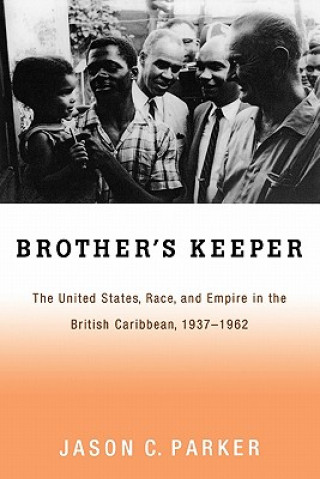
Code: 04476691
Brother's Keeper
by Parker
The culmination of West Indian decolonization came at a dangerous moment in the Cold War Caribbean, amid aftershocks of the Cuban Revolution, a wave of Third World nationalism abroad, and civil rights conflicts in the United State ... more
- Language:
 English
English - Binding: Paperback
- Number of pages: 264
Publisher: Oxford University Press Inc, 2008
- More about this

You might also like
-
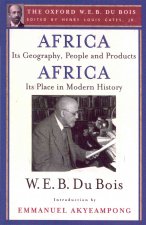
Africa, Its Geography, People and Products and Africa-Its Place in Modern History (The Oxford W. E. B. Du Bois)
33.25 € -
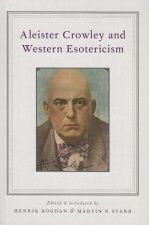
Aleister Crowley and Western Esotericism
176.38 € -

StyleCity New York
32.22 € -

Advanced Testbuilder 3rd edition Student's Book with key Pack
35.72 € -3 % -

Gigantic Turnip
10.29 € -13 % -

Remains of An Altar
11.21 € -23 % -

Bread, Body, Spirit
20.58 € -4 % -

Pro SQL Server 2008 Administration
49.31 € -3 % -

Give Us This Day
13.99 € -12 % -

Directions for the Gardiner
41.38 € -

Advanced Quantitative Analysis
55.80 € -

Genealogical Dictionary of the First Settlers of New England, Showing Three Generations of Those Who Came Before May, 1692, On the Basis of Farmer'S R
42.93 € -

Dasheen
20.28 € -

A bis Z
11.32 €
Give this book as a present today
- Order book and choose Gift Order.
- We will send you book gift voucher at once. You can give it out to anyone.
- Book will be send to donee, nothing more to care about.
More about Brother's Keeper
You get 122 loyalty points
 Book synopsis
Book synopsis
The culmination of West Indian decolonization came at a dangerous moment in the Cold War Caribbean, amid aftershocks of the Cuban Revolution, a wave of Third World nationalism abroad, and civil rights conflicts in the United States. Dozens of countries entered in the atlas in one generation, many of them through bloody clashes. Yet the West Indian passage to independence was peaceful and managed to avoid the heavy-handed American intervention seen elsewhere in the hemisphere, not to mention Vietnam and other parts of the globe. In this book, Jason Parker explains why a policy of American restraint was exercised in the British Caribbean (Jamaica and Trinidad and Tobago), despite the long association of West Indians with black radicalism in the United States. This book closely examines the dynamics of the decolonization of the British West Indies from the 1930s to its Cold War culmination, particularly those surrounding the creation and subsequent implosion of the West Indies Federation. Washington had long sought anticommunist stability and access to strategic assets in the Caribbean. Yet the American ability to pursue these objectives was limited by British sovereignty and West Indian agency. The British wanted to end their responsibility for the colonies while retaining influence there. West Indian nationalists sought an urgent transition from white supremacy and imperial rule, drawing on a transnational "diaspora diplomacy" based in Harlem to do so. The resulting Anglo-American-Caribbean relations swung between the transatlantic special relationship and the trans-Caribbean "protean partnership" of formal and diasporan diplomacy. This study uses archives in six countries to write an international history of these relations. It integrates that history into the tableau of inter-American relations, and explores the relationship between the Cold War and decolonization. In the West Indies, the former first slowed and then accelerated the latter--a process which was already underway, and one whose effects reverberate throughout the Third World into the present day.
 Book details
Book details
Book category Books in English Humanities History Regional & national history
49.72 €
- Full title: Brother's Keeper
- Author: Parker
- Language:
 English
English - Binding: Paperback
- Number of pages: 264
- EAN: 9780195332025
- ISBN: 0195332024
- ID: 04476691
- Publisher: Oxford University Press Inc
- Weight: 390 g
- Dimensions: 238 × 159 × 14 mm
- Date of publishing: 01. May 2008
Trending among others
-

Hundred Years' War on Palestine
12.14 € -24 % -

Ten Myths About Israel
12.55 € -16 % -

Diana: Her True Story - In Her Own Words
12.35 € -23 % -

Medieval Monsters
11.21 € -23 % -
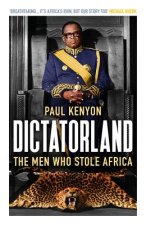
Dictatorland
13.79 € -8 % -

Memoirs from the House of the Dead
11.93 € -

Anatomy of the Nuremberg Trials
17.70 € -3 % -

Pity of War
21 € -23 % -

Washington
19.45 € -20 % -
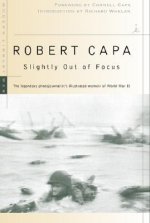
Slightly Out of Focus
15.13 € -22 % -
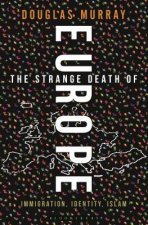
Strange Death of Europe
22.44 € -10 % -

Great Siege, Malta 1565
18.01 € -16 % -

Imperial Japanese Naval Aviator 1937-45
24.81 € -

Witnesses to a World Crisis
115.01 € -

Fortress Third Reich
27.89 € -

Families Who Made Rome
16.05 € -20 % -

Arthur and the Anglo-Saxon Wars
18.01 € -4 % -
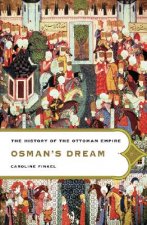
Osman's Dream
19.04 € -22 % -

Rolling Thunder Against the Rising Sun
35.82 € -1 % -
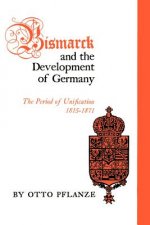
Bismarck and the Development of Germany
106.77 € -

Alexander the Great
18.83 € -23 % -

Machiavelli and Guicciardini
26.97 € -

Complete Pompeii
39.74 € -4 % -

History of Siam
42.21 € -

Fortress France
24.50 € -

Records of the Medieval Sword
34.59 € -9 % -

Hekate Soteira
59.51 € -

British Destroyers 1939-45
14.51 € -23 % -
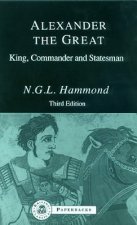
Alexander the Great
68.16 € -

Ethnic Cleansing of Palestine
14.51 € -23 % -

Decline and Fall of the Roman Empire
5.86 € -22 % -

Strange Death of Europe
16.57 € -23 % -
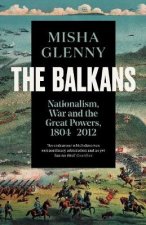
The Balkans, 1804-2012
22.13 € -23 % -
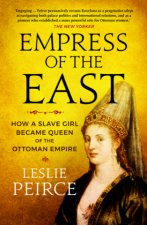
Empress of the East
14.51 € -23 % -

Palestine
20.28 € -22 % -

The Secret Diaries Of Miss Anne Lister: Vol. 1
13.58 € -15 % -

Giza Power Plant
16.05 € -17 % -
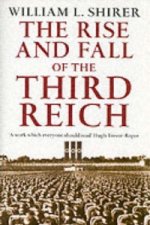
Rise And Fall Of The Third Reich
22.13 € -23 % -
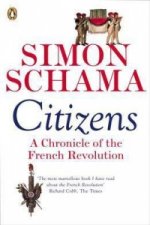
Citizens
22.13 € -23 % -

Millennium
13.27 € -24 % -

Maurice's Strategikon
30.78 € -2 % -
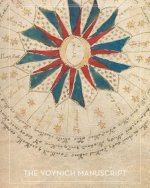
Voynich Manuscript
41.59 € -

Last Voyage of the Lusitania
20.79 € -

1948
24.81 € -10 % -
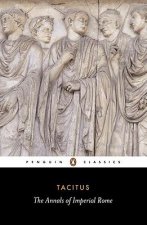
Annals of Imperial Rome
14.51 € -23 % -

Strike and Hold
30.16 € -3 % -
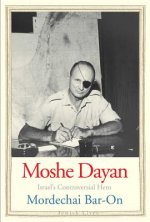
Moshe Dayan
27.48 € -9 % -

The Fourth Turning
20.69 € -1 % -

Londoners
11.32 € -25 %
Collection points Bratislava a 2642 dalších
Copyright ©2008-24 najlacnejsie-knihy.sk All rights reservedPrivacyCookies



 15549 collection points
15549 collection points Delivery 2.99 €
Delivery 2.99 € 02/210 210 99 (8-15.30h)
02/210 210 99 (8-15.30h)